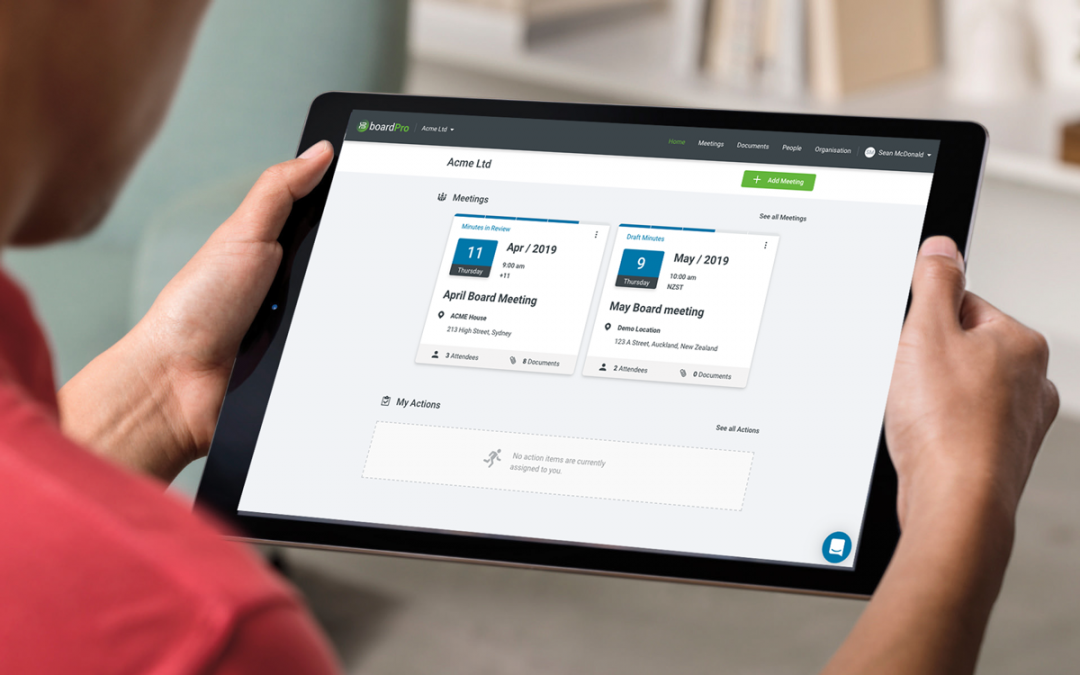Whether you’re a board member, CEO or administrator, you’ve undoubtedly run into this bugbear: A critical decision has come due and you want to refer to past discussions on the topic. You vaguely recall it was a bit contentious but your memory is a bit hazy and you can’t speak with any confidence on what was previously said. Where is that information? Where do you even start looking? It could be in the minutes of any number of meetings, it could be sitting in a supplementary paper… In all honesty, you don’t know where to begin! ‘Lost’ discussions is a pain point we often hear about. Hours wasted manually searching for that elusive document: Dropbox, Google Drive, emails, paper copies you have had filed away… somewhere? It’s a painstaking process and often ends without joy, or if you do find the relevant minutes you’re lucky if there’s sufficient detail to know what really happened.Sadly, it looks like you’re going to be relitigating the argument all over again… Or are you? Here’s three steps for banishing the pain of searching for historical information.
Being present is more than just being in the room. It’s about being mentally engaged and actively listening. A surprisingly common cause of ‘memory loss’ is related to not being ‘present’- it’s not lost at all, it was never absorbed in the first place. Maybe you are distracted on your phone, catching up on emails or prepping for the next agenda item? Whatever you’re doing, stop! Put down the phone, close the laptop and tune in - this active engagement doubles your ability to recall the conversation down the track and can save you precious time searching aimlessly.
Well prepared minutes provide a fabulous boost to fading memories. Done well, minutes can get everyone on the same page quickly and eliminate painful rehashes of old discussions. Governance expert, Graeme Nahkies, has this advice on minute taking:
“The minutes are not only a record of a board’s decisions but of the history and development of the board’s thinking about important matters. The more important something is the more thorough the minutes should be. Meeting minutes should be written carefully but be balanced to ensure that they are neither too long nor too short. Legal advice has changed over the years. Once minimalist minutes (a record of decisions and not much else) were favoured. Today more fulsome disclosure of a board’s thinking is considered appropriate. Apart from decisions, the minutes should include just enough to record the most important ingredients in the board’s thinking. It is normally neither necessary nor advisable to note who said what. The objective is to document the processes and outcomes. Documents which form an important part of the board's decision-making should be referenced or even attached.”
A little discipline in organising storage of board papers goes a long way when it comes to mitigating the issue of lost discussions. At a very basic level, all boards should follow these practices:
Of course, modern cloud software makes storage and access to board papers much easier, and is delivered seamlessly by products like BoardPro. Governance software has a massive advantage over desktop systems with searchability, particularly when a simple keyword search can identify any previous agenda items, document titles, or meeting minutes relating to that topic. Within seconds, not minutes (or hours!) you’ll have all relevant history at your fingertips - papers provided to support the discussion, and Notes, Decisions and/or Actions recorded in the minutes.If your organisation can successfully implement these changes to improve your processes, checking your past board discussions and recovering historical information will become a breeze.
If you're looking for a tool to streamline your Board processes, check out BoardPro - an all-in-one software solution designed specifically for Boards and busy CEOs!
Schedule a demo with our team today and begin to experience a whole new way of meeting.
These Related Stories


